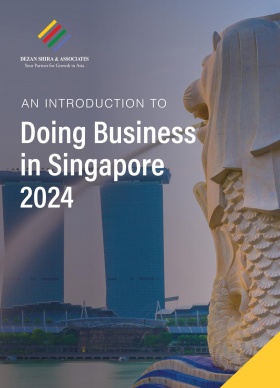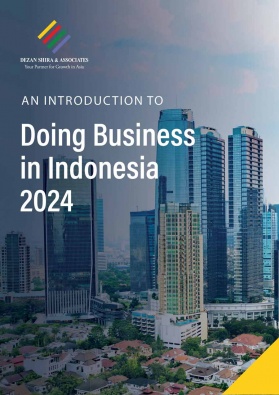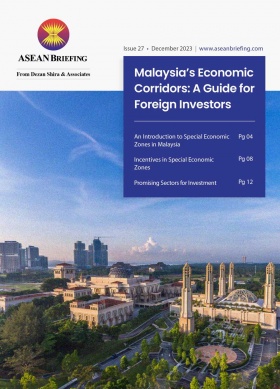Indonesia Explores Revisions to Enhance Micro Loan Subsidy Program
Indonesia is contemplating revisions to its microloan subsidy program amidst a backdrop of regulatory resistance to proposed loan restructuring extensions. This deliberation follows a recent suggestion by President Joko Widodo to revive a COVID-era policy that would allow banks to forgo provisions for bad loans, aiming to boost liquidity in the financial system during periods of capital outflow.
However, the country’s financial regulatory body, the Financial Services Authority (OJK), has indicated it is unlikely to support this move, asserting that the banking sector remains sufficiently robust.
This evolving situation has sparked a comprehensive review of the current rules governing the Kredit Usaha Rakyat (KUR) program, which provides subsidized interest rates for micro and small loans, to better address rising credit protection demands and potential increases in bad loans.
In this article, we explore Indonesia’s potential revisions to its microloan subsidy program, the debate over reinstating a COVID-era loan restructuring policy, and the implications for micro-enterprises.
Background
The COVID-19 pandemic, declared in Indonesia in March 2020, led to widespread disruptions across various sectors, significantly impacting both public health and economic activities. To curb the virus’s spread, the government implemented Large-Scale Social Restrictions (PSBB), which caused a significant economic downturn and contributed to a recession. According to an August 2020 report by Statistics Indonesia (BPS), the country’s economy contracted by 5.32 percent year-on-year in the second quarter of 2020, following a reduced growth rate of 2.97 percent in the first quarter, down from 5.02 percent in the same period of the previous year. This economic decline was particularly severe for micro, small, and medium enterprises (MSMEs), many of which were forced to close or operate with drastically reduced turnover.
In response to the economic challenges faced by MSMEs, the Indonesian government introduced several measures, including the Presidential Productive Assistance for Micro Enterprises Program (BPUM). Launched on July 14, 2020, BPUM aimed to provide critical working capital assistance to micro entrepreneurs. This initiative was part of the National Economic Recovery (PEN) program, designed to support the most vulnerable businesses affected by the pandemic.
BPUM targeted micro businesses, especially those that were not traditionally bankable or formally incorporated. The program aimed to aid micro-home businesses and other informal sector operations, ensuring they could access necessary financial support. By the end of its initial phase, BPUM aimed to reach 9.1 million micro-enterprises with a total budget allocation of 22.01 trillion rupiah, which later increased to 28.8 trillion rupiah (US$1.7 billion) to benefit 12 million micro-enterprises.
The assistance provided under BPUM was a one-time cash grant of 2.4 million rupiah (US$148) per eligible micro-entrepreneur. To qualify, businesses had to meet several criteria, including being Indonesian citizens with valid identification numbers and owning a micro-enterprise. The funds were disbursed directly into the beneficiaries’ bank accounts, ensuring quick and efficient distribution.
Possible impact of the policy on MSMEs if reinstated
If the Indonesian government reinstates the COVID-era loan restructuring policy, it could have several significant impacts on MSMEs. This policy, initially introduced during the pandemic to mitigate the economic downturn, allowed banks to avoid making provisions for bad loans, thereby helping to maintain liquidity in the banking system.
On the bright side of it, positive impacts include:
- Enhanced liquidity and credit access: Reinstating this policy could ensure that banks remain liquid, potentially making it easier for micro enterprises to access credit. With more available funds, banks might be more willing to extend loans to smaller businesses that are often considered higher risk.
- Financial stability: For micro enterprises struggling with existing loans, the restructuring policy could provide much-needed relief. It would allow these businesses to renegotiate loan terms, potentially lowering monthly payments and extending repayment periods, which could help them manage cash flow more effectively.
- Continuation of business operations: By reducing the immediate financial pressure on micro-enterprises, this policy could help many small businesses continue operations, preserving jobs and sustaining economic activity at the grassroots level.
Simultaneously, critics of the policy reinstatement contend that it may also have several negative impacts, including:
- Potential moral hazard: Some bankers argue that reinstating the policy could create a moral hazard, where borrowers might be incentivized to take on riskier loans with the expectation that they could be restructured again in the future. This could lead to irresponsible borrowing and lending practices.
- The reduced incentive for prudence: The policy might reduce the incentive for micro-enterprises to manage their finances prudently if they believe that loan restructuring will always be an option. This could undermine long-term financial stability and sustainability.
- Bank reluctance to lend: Despite the policy, banks might become more cautious in lending to micro-enterprises due to the perceived higher risk of non-performing loans (NPLs). This could potentially counteract the policy’s intention to increase credit availability.
Current context and considerations
Data indicates that the ratio of gross NPL for the banking sector has declined to around 2.33 percent by April 2024, lower than the average during the pandemic. This suggests that the banking sector is more stable, and banks have adequate provisions to cover potential losses.
Given this stability, some argue that the need for such a policy is less pressing now, and the risks of moral hazard might outweigh the benefits.
With credit growth at 12.15 percent year-on-year in May 2024, exceeding the central bank’s target, the banking sector has robust liquidity. This suggests that micro-enterprises might already be benefiting from increased lending activities without the need for relaxed restructuring rules.
Moreover, while some industry leaders like the CEO of Bank CIMB Niaga believe banks currently have sufficient liquidity, others, like the Indonesian Banks Association secretary general, emphasize the need to support businesses still struggling post-pandemic.
In conclusion, reinstating the COVID-era loan restructuring policy could provide immediate financial relief and improved credit access for micro-enterprises, aiding their recovery and operational continuity. However, it also poses risks of creating a moral hazard and potentially encouraging imprudent financial behavior. Balancing these benefits and risks will be crucial for the Indonesian government in deliberating whether to reinstate this policy.
About Us
ASEAN Briefing is produced by Dezan Shira & Associates. The firm assists foreign investors throughout Asia and maintains offices throughout ASEAN, including in Singapore, Hanoi, Ho Chi Minh City, and Da Nang in Vietnam, in addition to Jakarta, in Indonesia. We also have partner firms in Malaysia, the Philippines, and Thailand as well as our practices in China and India. Please contact us at asean@dezshira.com or visit our website at www.dezshira.com.







